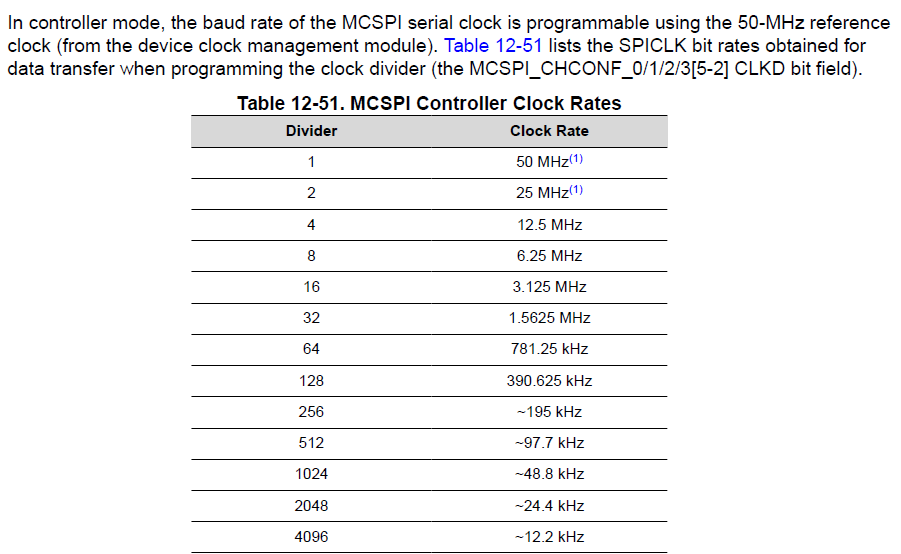Other Parts Discussed in Thread: SK-AM62, TCA6424
Tool/software:
Hi,
We have a application where continuous SPI read is needed and we are using default SPI driver given in SDK(TI-RTOS). We have configured 10MHZ clock and we need register level detail to optimize following delays.
1. CS to First data assertion delay
2. Inter packet delay
3. Last SPI packet to CS high delay.
I have attached signal capture from scope for reference.
Thanks,
siva.
14
1192
12


